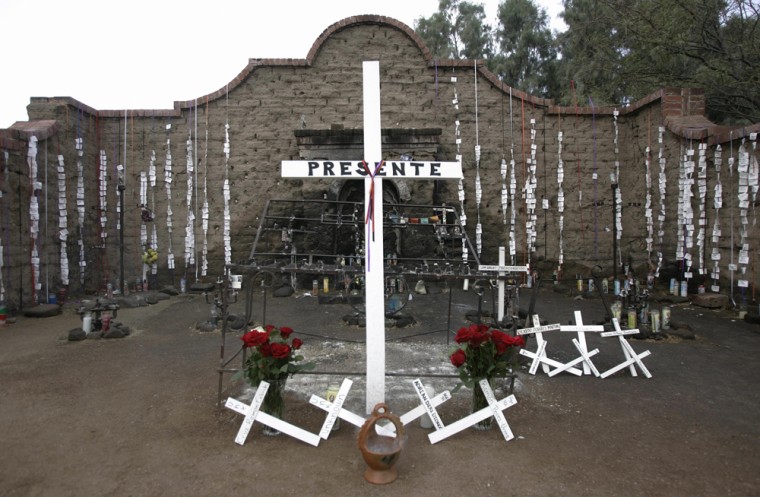The number of immigrants who died while sneaking across Mexico's border with America is expected to surpass the previous year's total, even as fewer people are getting caught entering the country illegally.
The U.S. Border Patrol says 378 people perished near the border during the 11-month period that ended Aug. 31. The death toll is likely to rise in the coming days as the government finishes its tally for the fiscal year that ended Sept. 30.
Immigrant-rights advocates say the numbers reflect deep flaws in America's border enforcement, because as the Border Patrol puts more agents and technology in certain spots, smugglers turn to more remote migration routes where enforcement is weaker, thus exposing their clients to more perilous conditions, such as triple-digit summer heat.
"There is a very large increase in the rate of deaths, despite the economic downturn, less immigration and the increase in the number of Border Patrol agents. This shows that our border strategy is having a truly horrifying cost in human lives," said Kevin Keenan, executive director of the American Civil Liberties Union of San Diego and Imperial Counties in California.
Putting lives at risk
Border Patrol spokesman Lloyd Easterling said the agency has sent its search-and-rescue crews out at least 444 times in the last year to reach immigrants in distress, installed rescue beacons where immigrants in trouble can signal for help, and run public service advertisements that warn of money-hungry smugglers who will expose them to dangers.
"We want to make sure that our efforts are focused on preventing the border crossings to begin with and target these human smugglers who take people out into these locations and put their lives at risk," Easterling said.
More than half the deaths in the fiscal year that just ended were reported in Arizona, which became the busiest illegal entry point along the border after the federal government tightened enforcement in El Paso, Texas, and San Diego in the mid-1990s.
Texas ranked second in immigrant deaths, followed by California and New Mexico.
The leading cause of death was exposure to the heat. Other causes included drownings in rivers and drainage canals, homicides by bandits who target immigrants during the long walk across the border, and rollovers of smuggling vehicles.
Nine illegal immigrants who were being smuggled into the country died in June when the SUV they were traveling in lost control and rolled over on a remote highway in Sonoita, Ariz. Twenty-seven immigrants were crammed in the Ford Excursion, which had its rear seats removed to make room for more people. A tire on the vehicle blew out under the weight of the smuggling load. Nineteen others were injured.
Thirteen deaths in September would make the recently ended fiscal year more deadly than the previous year, when 390 deaths were reported. The record of 492 deaths was set in 2005.
Humanitarian crisis
A report released this week by the ACLU and Mexico's National Commission of Human Rights called the deaths a humanitarian crisis and recommended that the Border Patrol put more resources into its search-and-rescue operations.
Arturo Sarukhan, the Mexican ambassador to the United States, said in a statement that his country has made its own efforts at trying to prevent the deaths.
Sarukhan said Mexico runs media campaigns warning would-be immigrants about illegal border crossings, and it participates in a program in which arrested immigrants are flown from Arizona to Mexico City in hopes of keeping them away from border towns where they would run into smugglers who want to sneak them back into the United States.
Jennifer Allen, director of the Border Action Network, an immigrant rights group based in southern Arizona, said the answer to reducing border deaths is for Congress to overhaul America's immigration policies so that it's easier for immigrants to come into the country safely and they don't have to rely on smugglers for help.
Otherwise, immigrants will continue to risk their lives so they can escape poverty in Mexican and join family members living in the United States, Allen said. "It's tragically predictable," Allen said.
